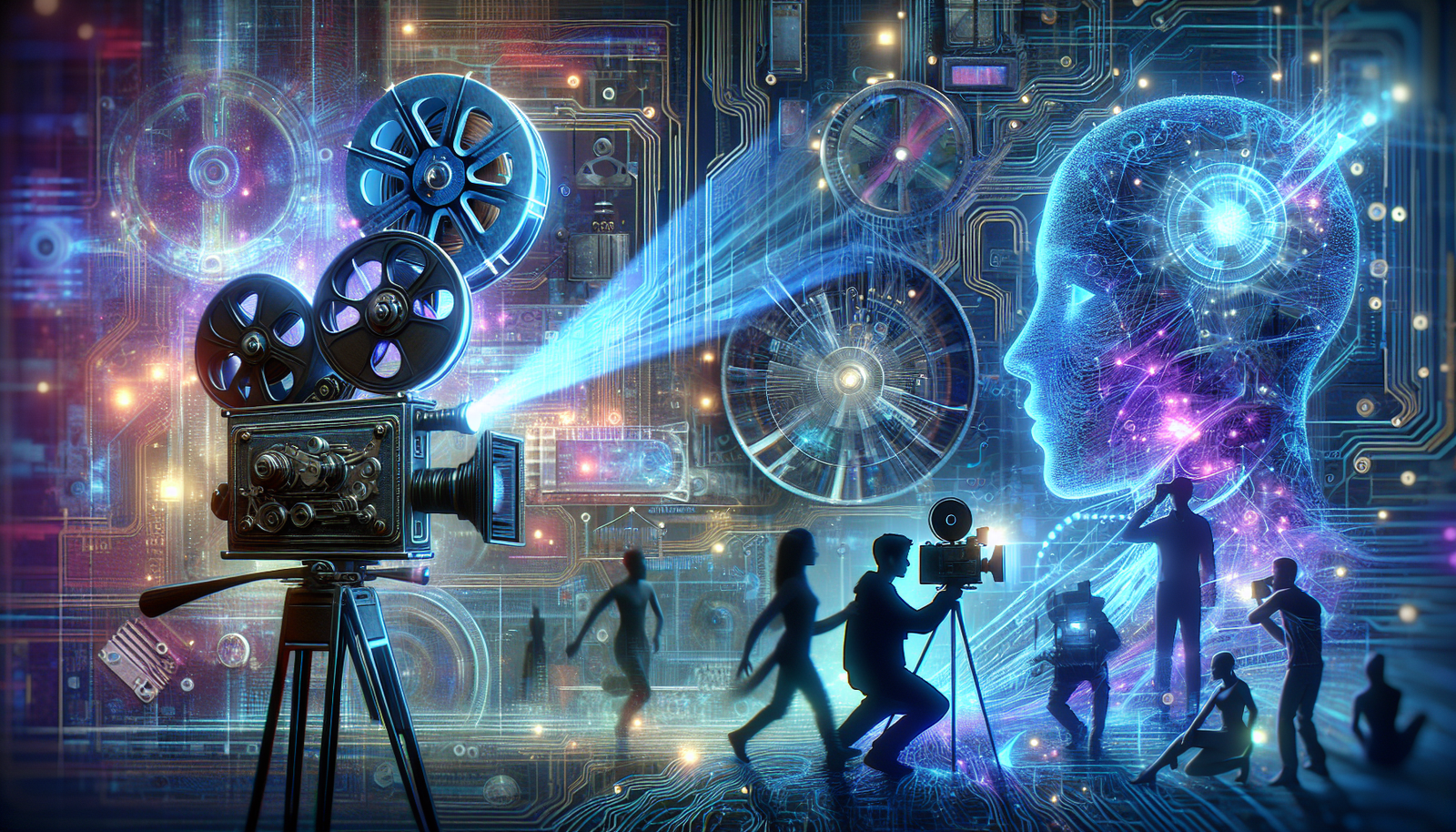Axelle Ropert, an engaged filmmaker, questions the use of AI in contemporary cinema. The meeting between technology and creativity raises ethical, artistic, and professional concerns. A paradigm shift is required, distancing art from the industrial simplification promised by technological innovations. Ropert calls on the industry for deep reflection on the future of storytelling and the human relevance in an increasingly automated space.
A reflection on the evolution of cinema
Axelle Ropert, filmmaker and film critic, questions the impact of artificial intelligence in the cinematic field. Her experience as a director and critic gives her a unique perspective on this phenomenon. She speaks of an evolution that could alter not only production but also artistic creation itself.
The promises of AI in the creative process
In Ropert’s eyes, artificial intelligence enters the creative process with enticing promises. Algorithms capable of analyzing vast amounts of data and proposing supposedly innovative scenarios. The aspiration for increased productivity, touted by AI proponents, strikes, however, by its illusory nature.
The director criticizes these supposedly immediate productivity gains. For her, the very essence of storytelling cannot be reduced to mathematical equations or optimization manuals. Human fidelity to emotion and nuance risks being sacrificed at the altar of efficiency.
A symphony of feelings
Ropert conceived her film, *Petite Solange*, as a symphony of feelings where the attention paid to the subtleties of daily life outweighs spectacular events. She therefore questions the capacity of machines to reproduce this sense of humanity inherent in every cinematic narrative.
The film depicts the emotions of a young girl facing family upheavals. Ropert focuses on the authenticity of emotions, thus questioning the ability of AI to grasp and convey these nuances. The depth of human experience often eludes algorithms, raising an ethical debate about their use.
Scriptwriters and the machine
In her column published in *Le Monde*, Ropert also warns against the trend of favoring AI for scriptwriting. She highlights the risks of formatted content, distant from the very essence of cinematic art. The machine, by reproducing narrative patterns, fails to replicate the originality of a human writer.
The standardization of narratives could lead to a disheartening uniformity. Diversity and creativity are essential for cinematic richness. For Ropert, innovation must continue, but it should not be at the expense of human subjectivity.
A call for collective reflection
Ropert calls on the industry to engage in a collective reflection on the future of cinematic creation in the face of AI. Rather than yielding to the pressure of technological acceleration, she advocates for a return to the contemplation of the true artistic stakes. Creators must remain vigilant against the machinations of a technology that could mask enriching creative times.
Cinema should not be a mere consumer product, but a space allowing the exploration of human complexities. The question then arises: at what cost do we allow the machine to intrude into the art of storytelling?
An inevitable duality
Finally, Ropert emphasizes an inevitable duality. The opposition between the finite and the infinite, between the human and the non-human, shapes the landscape of modern cinema. Advances in artificial intelligence cannot be ignored, but their integration raises questions about artistic integrity.
The artistic approach must resist the temptation of illusory promises. A call arises to defend the richness of human storytelling against the seductions of technology.
Frequently asked questions about Axelle Ropert and the illusion of AI in cinema
What is Axelle Ropert’s view on the use of AI in cinema?
Axelle Ropert emphasizes that while AI is presented as a means to increase productivity, it can actually pose ethical and creative challenges. She calls for collective reflection on these issues.
How does Axelle Ropert perceive the relationship between AI and cinematic creativity?
For Ropert, cinematic creativity cannot be reduced to algorithms. She believes that AI cannot replace the emotional depth and human experiences that nourish cinema.
What ethical issues does AI face in the film sector, according to Axelle Ropert?
Axelle Ropert highlights concerns such as the dilution of artistic authenticity, the risk of standardization of narratives, and the possibility of creative jobs being replaced by automated systems.
What solutions does Axelle Ropert offer to overcome the challenges posed by AI to cinema?
Ropert encourages a collaborative approach where filmmakers, critics, and the industry come together to discuss the implications of AI, preserving the place of humanity in artistic creation.
What is Axelle Ropert’s approach to storytelling in her films in the face of modern technology?
She focuses on human and emotional narratives, using classic storytelling elements to capture the essence of human experiences, rather than relying on advanced technologies like AI.
How does Axelle Ropert envision the future of cinema with the integration of AI?
She remains skeptical about the impact of AI on storytelling and authenticity, while recognizing that it is crucial to navigate these changes carefully, to protect the integrity of cinematic art.
Which films by Axelle Ropert illustrate her point of view on the importance of the human element in cinema?
Films like “La Famille Wolberg” and “Petite Solange” showcase her interest in human dynamics and real emotions, filling her narratives with lived experiences and depth.






